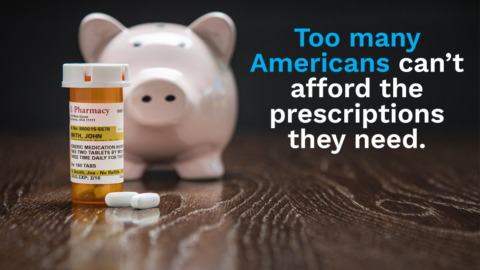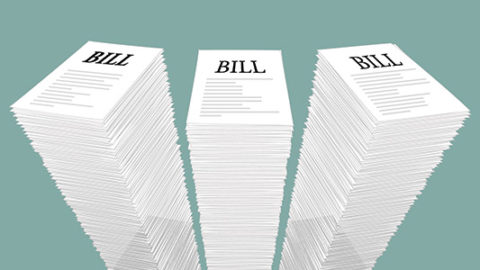The health care provisions of COVID-19-related legislation to date have focused primarily on ensuring health care providers have the resources they need to treat the influx of affected patients. In addition, Congress has rightly taken steps to slow the spread of the virus, ensure that patients have access to needed tests and treatment, and protect workers and businesses from the collapsing economy.
As Congress considers “Phase 4” legislation, it should seek to build upon the foundation set by the earlier legislation, with a particular focus on the downstream financial effects of the crisis. In the best interest of American businesses and consumers, the next wave of legislation should focus on seven priorities.
1. Maintain and Strengthen Primary Care
Many primary care groups are reporting dire financial situations and the possibility of imminent closure due to the loss of patient revenue during the COVID-19 crisis. In addition to the funding provided to-date for hospitals and providers (an unknown portion of which is likely to make it to primary care providers), Congress should specifically earmark financial support to vulnerable primary care practices. This is critical to ensure that primary care survives and thrives in the aftermath of the COVID-19 crisis.
In addition, Congress should take this opportunity to accelerate the move away from fee-for-service payment for primary care to a model that is prospective, population-based, team-based and addresses social needs[1].
2. Prohibit Price Gouging and Ban Surprise Billing
Media reports indicate that personal protective equipment (PPE) and other supplies have seen exorbitant price increases.[2] We need to ensure that the small number of unscrupulous actors do not take advantage of this crisis to engage in price gouging. During the pandemic, policymakers should explicitly ban price gouging on any health care items or services, prosecutable by the Federal Trade Commission and State Attorneys General.
In addition, Congress has been debating legislation to ban surprise medical bills for more than a year. With tens of thousands of people now seeking care for COVID-19, many will be forced to see out-of-network providers due to the overwhelmed health care system. It is more important than ever that Congress prioritize banning this abusive practice. This legislation should protect patients and hold down health care costs by using a local, market-based benchmark payment rate for out-of-network care.
3. Ensure Accountability and Transparency for Federal Funds
The CARES ACT (H.R. 748) and subsequent legislation provide more than $175 billion in direct financial support to hospitals and other health care providers. This funding is in addition to other financial support to hospitals, including suspension of budget sequestration, extension of Medicare Disproportionate Share Hospital payments, COVID-19 related add-ons, and others. Unlike the funding provided to other businesses, however, this funding provided to hospitals and other health care providers does not come with any meaningful transparency or accountability. To ensure reasonable oversight of federal taxpayer funding, policymakers should extend the same requirements as stipulated for other businesses.
4. Provide Risk Mitigation Mechanism
According to an analysis prepared for Covered California, the potential cost of coverage for COVID-19 related services could exceed $200 billion.[3] In the short-term, those costs may be offset by reduced demand for elective procedures. In the longer term, however, pent-up demand could substantially increase utilization once the pandemic has subsided. With health plans unable to accurately forecast cost effects, their fear about future costs could cause premiums to spike by as much as 40 percent.[4] Congress should avert potential premium spikes by enacting policies that protect insurers and self-insured employers from unexpected costs in the 2020 and 2021 plan years. Such policies could include a reinsurance mechanism or one-sided risk corridor, which would “kick in” only if costs exceed a certain threshold.
5. Expand Access to Affordable Coverage
With millions of Americans losing jobs and income as a result of social-distancing measures, Congress should take immediate action to make affordable coverage available to those who have lost their jobs and access to employer-sponsored coverage. Congress should provide subsidies for COBRA coverage for the duration of the crisis and offer a special open enrollment period for the health care exchanges. In addition, we need to find ways over the longer-term to provide coverage to everyone – for example, with enhanced subsidies for low-income people to buy individual coverage and financial incentives for all states to expand their Medicaid programs. At the same time, we need to ensure that coverage expansion is accompanied by meaningful policies to reduce the costs of our health care system.
6. Prevent “Price Creep”
The CARES Act provides more than $175 billion in direct financial support to hospitals and other health care providers to help them deliver care to all patients during this public health emergency. However, despite this infusion of funds, we are concerned that some hospitals and providers will increase their future prices above what they had originally planned. This would cause overall health care costs to increase dramatically. To prevent this, policymakers should consider limiting price increases.
7. Place a Moratorium on Industry Consolidation
During the COVID-19 crisis, many independent physician practices are under extreme financial duress, and some hospitals and health systems may take advantage of this opportunity to acquire these vulnerable practices at “fire sale” prices. To prevent this anti-competitive behavior, which has been shown to increase prices in the commercial market, Congress should consider a temporary moratorium on mergers and acquisitions among hospitals, health systems, health plans and physician groups.
[1] One example of this is the AAFP’s proposed Advanced Primary Care Alternative Payment Model that was approved by PTAC. https://www.aafp.org/news/macra-ready/20171219apc-apm.html
[2] https://www.cbsnews.com/news/china-ppe-us-buyers-knock-offs-price-gouging/
[3] https://hbex.coveredca.com/data-research/library/COVID-19-NationalCost-Impacts03-21-20.pdf
[4] ibid.





